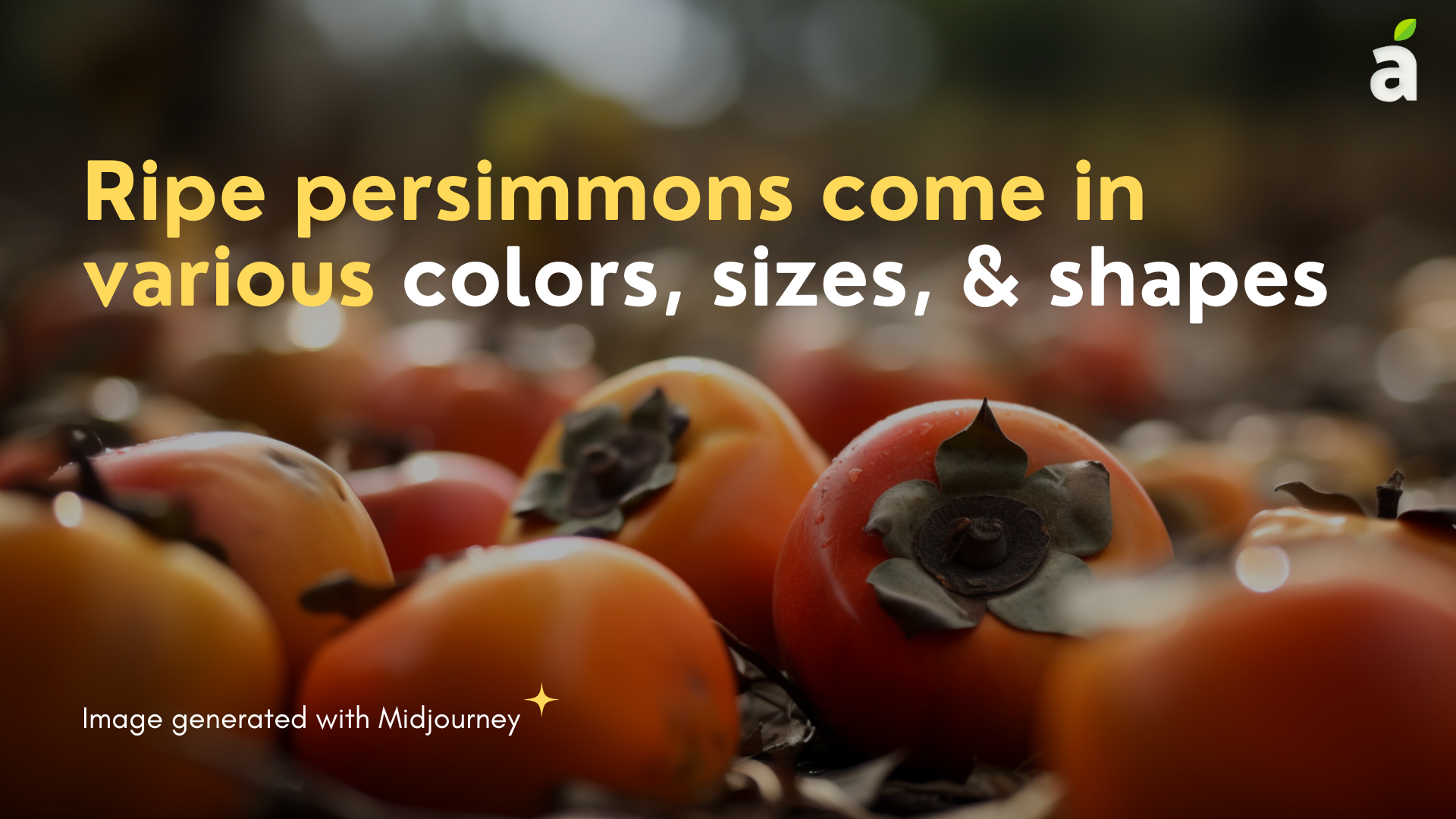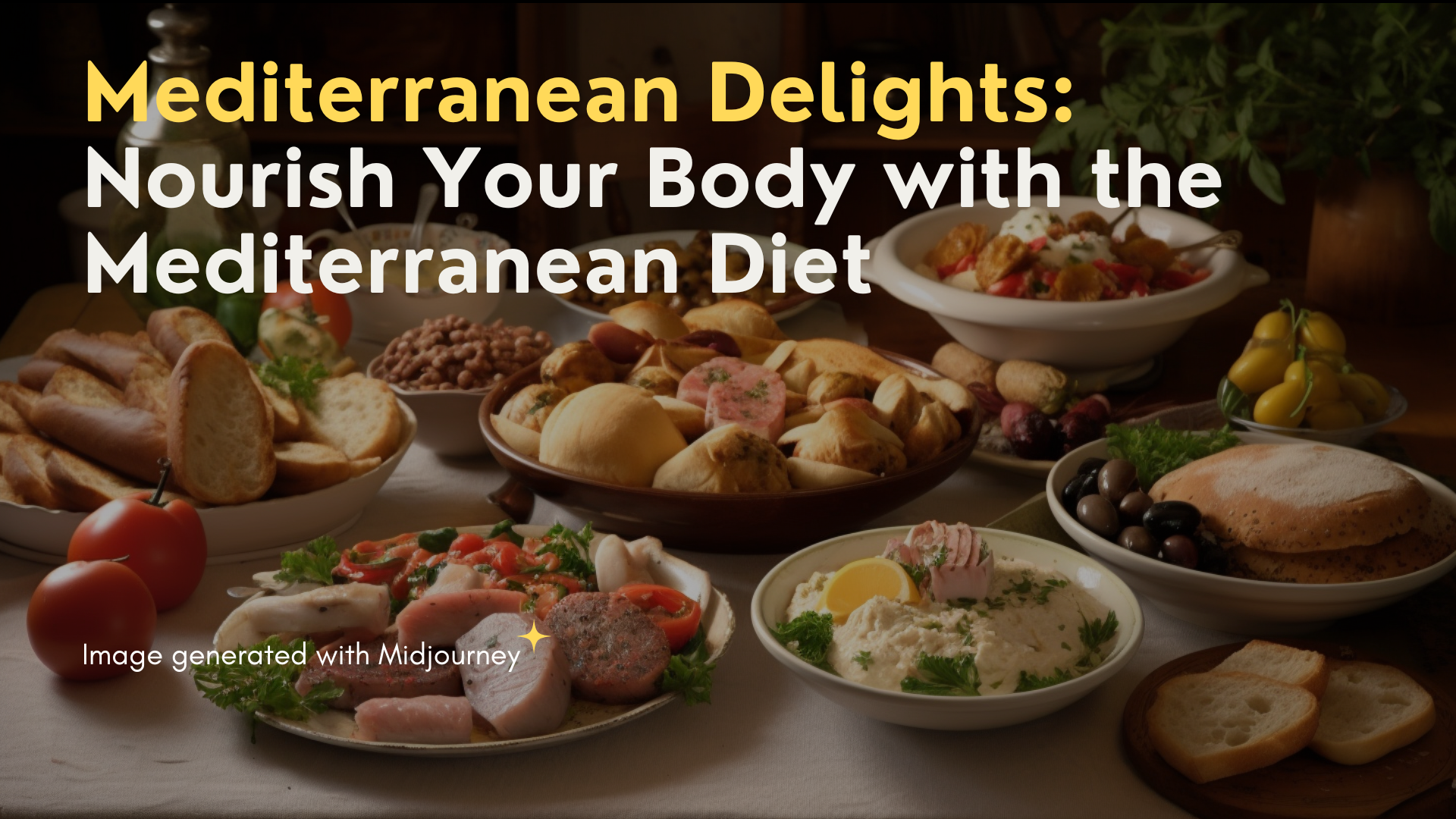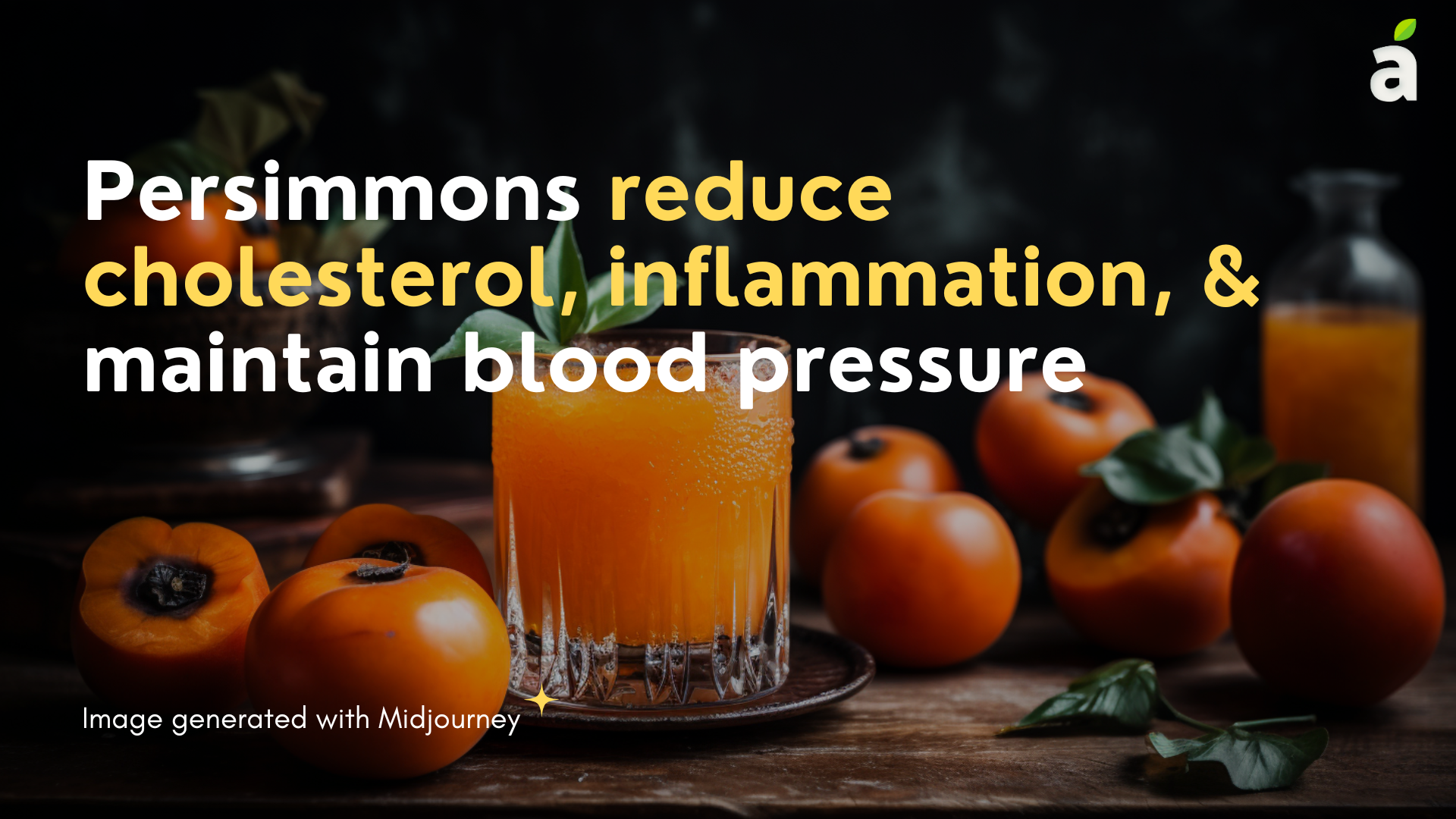Published Date January 24, 2003
Persimmon: A Tangy Twist to Nature's Sweetness
By Naurin Ansari
3 min read
Last update date: January 24, 2003

Welcome to the world of Persimmons! With their captivating flavour and vibrant appearance, persimmons have become increasingly popular in recent years. In this comprehensive blog, we will dive into the realm of persimmons, delving into what they are, how to select the perfect ones and the numerous health benefits they offer. Prepare to indulge in the sweet and nutritious wonders of persimmons.
What is Persimmon?
Persimmons are delightful fruits from the Diospyros genus family and are found in various regions worldwide. The two popular varieties, Fuyu and Hachiya, offer distinct characteristics. Fuyu persimmons resemble apples and can be enjoyed while firm, while Hachiya persimmons have an acorn-like shape and must be fully ripe and soft to avoid their astringent taste.
Persimmons, specifically Diospyros kaki, are fruits that grow on trees of the Diospyros genus. Ripe persimmons vary in colour, size, and shape, ranging from light yellow to dark red-orange. Due to their high tannin content, Hachiya persimmons have a heart or acorn shape and a slightly acidic or bitter taste. Fuyu persimmons, with a tomato-like shape, offer a different flavour profile. Persimmons are typically available for purchase from October to February.[1]
Buying the Right Persimmon
When selecting persimmons, it is important to consider their ripeness and variety. For Fuyu persimmons, look for firm-textured fruits without blemishes. These persimmons can be enjoyed when they are crisp or slightly soft, similar to a ripe tomato. On the other hand, Hachiya persimmons should be fully ripe and feel extremely soft to the touch. Avoid purchasing firm Hachiya persimmons, as they can have an unpleasant astringent taste.
A good persimmon has a sweet, mild, and rich flavour, often described as "honey-like." The skin of a persimmon is slightly tougher than an apple, and its texture is similar to that of an apricot. Biting into an unripe persimmon will result in a bitter taste and the high tannin content may cause your mouth to pucker and feel dry.
Choosing persimmons can be compared to selecting tomatoes. Look for fruits that are smooth, free of blemishes, and have a slight give when gently squeezed, similar to a tennis ball.[1]
The Many Benefits of Persimmon
Persimmons are not only delicious but also offer a range of health benefits. Let's explore why you should consider adding persimmons to your diet:
- Nutrient-Rich: Persimmons are packed with essential vitamins and minerals like vitamin C, vitamin A, manganese, and dietary fibre. These nutrients support a healthy immune system, improve vision, aid digestion, and promote overall well-being.
- Antioxidant Activity: Persimmons are rich in antioxidants, including flavonoids and carotenoids, which help combat oxidative stress and protect cells from damage caused by harmful free radicals. The presence of free radicals is associated with the development of various chronic health conditions, including cardiovascular and inflammatory diseases, cataracts, and cancer. Antioxidants contribute to overall health and may reduce the risk of such chronic diseases.
- Anti-Inflammatory Activity: Studies suggest that the compounds found in persimmons exhibit anti-inflammatory properties. Consuming persimmons may help reduce inflammation in the body, which is associated with various health conditions, including heart disease, arthritis, and certain types of cancer.
- Effects on Heart Health: Persimmons have been linked to improved cardiovascular health. Their fibre content, antioxidants, and other bioactive compounds help lower cholesterol levels, reduce inflammation, and support healthy blood pressure. These factors contribute to a healthier heart and as a result, reduce the risk of heart disease.
- Effects on Eye Health: Persimmons contain zeaxanthin and other carotenoids that are beneficial for eye health. These compounds act as antioxidants and may help protect the eyes from age-related macular degeneration (AMD) and cataracts. Regular consumption of persimmons can contribute to maintaining good vision as you age.
- Effects on Diabetes: Persimmons have a low glycemic index (GI) and are rich in dietary fibre, which can help regulate blood sugar levels. The fibre content slows down the absorption of sugar into the bloodstream, preventing rapid spikes in blood sugar levels. However, individuals with diabetes should still consume persimmons in moderation and monitor their blood sugar levels.
Additionally, persimmons are rich in dietary fibre, particularly when dried. This fibre helps lower levels of bad cholesterol by binding with it in the digestive system and removing it from the body. The high vitamin C content in persimmons also supports immune function, with a single persimmon meeting a significant portion of your daily vitamin C requirement. [2][3][4][5][6]
Takeaway
Persimmons are a true treasure among fruits, offering a captivating taste and a wealth of health benefits. Whether enjoyed as a snack, in salads, or as a versatile ingredient in various recipes, persimmons can be a delicious and nutritious addition to your daily meals. Embrace the enchantment of persimmons and savour the joy they bring to your palate and well-being.
References
- https://www.myrecipes.com/how-to/cooking-questions/what-is-persimmon
- https://www.medicalnewstoday.com/articles/persimmon-fruit
- https://www.organicfacts.net/health-benefits/fruit/persimmons.html
- https://www.webmd.com/diet/health-benefits-persimmon#:~:text=Persimmons%20are%20a%20good%20source,conditions%20including%20cancer%20and%20stroke.
- https://www.healthline.com/nutrition/persimmon-nutrition-benefits#TOC_TITLE_HDR_6
- https://www.medicalnewstoday.com/articles/persimmon-fruit#health-benefits
Keep reading

9 months to bake a bun
I have heard people refer to a baking bun when talking about pregnancy. A bun certainly doesn’t take about 9 months to be baked.
By Hetvi Shah

Eat Shakahari to Lose a Few Kilos
By Hetvi Shah

Mediterranean Diet: Journey to a Healthier You
By Naurin Ansari

What does it take to bake a bun?
A bun needs a few necessary ingredients to turn out fine. By fine I mean it needs to be fluffy or spongy enough to be called a bun.
By Hetvi Shah
Choose Healthy With Us.
Know the real truth about your food. Stay informed and healthy, for free.

Download the App Now
Certified nutritionists trust our food recommendations. Safe to say, so can you :)










